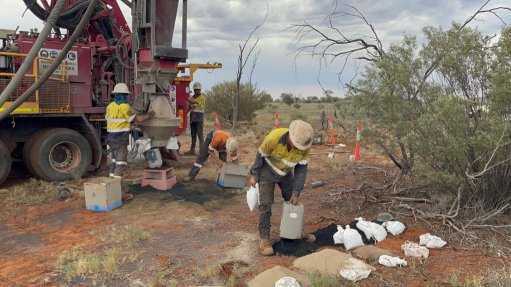Chicken waste will help keep the lights on
Besides the birds themselves, poultry farms and poultry processing facilities have one thing in common: vast amounts of organic waste material. At RCL FOODS’ chicken farms and plants, literally hundreds of tons of chicken manure and post-processing organic ‘waste’ are produced each day – along with millions of litres of energy-rich wastewater sludge.
To extract value from this mountain of waste, poultry farms typically compost their chicken litter, and chicken processors render down their organic waste to create raw materials for animal feed. But value gets lost in the process, and ‘cleaning’ the wastewater sludge can be energy- and chemical-intensive.
With energy costs rising and organic waste coming to the fore as a readily available renewable energy source, major food producers are seeing the benefit of implementing waste-to-energy solutions to reduce their dependence on the grid. As part of its sustainable business drive, RCL FOODS has invested in creating different forms of value from waste – most importantly, given the current energy crisis, using chicken waste to generate electricity.
In his State of the Nation address prior to the Covid-19 lockdown, President Cyril Ramaphosa indicated several measures being taken to rapidly and significantly increase generation capacity outside of Eskom. These included continuing to register small-scale distributed generation of less than 1 MW for own use and ensuring that all applications by commercial and industrial users to produce more than 1MW of electricity for their own use are processed within the prescribed 120 days.
A Section 34 Determination published by the Department of Mineral Resources and Energy in September, saw provision being made for 6.8 GW of renewables, 3 GW of gas and 1.5 GW of coal to be brought onto the grid.
While the cap on onsite self-generation currently remains, the availability of ‘green’ development finance and declining costs make investing in own-generated electricity more feasible.
Generating your own electricity can significantly improve self-sufficiency in times of loadshedding, save on energy costs, and provide income from selling excess power into the national grid. That a greater proportion of renewables will also reduce greenhouse gas emissions goes without saying.
While solar projects are a growing contributor to the RCL FOODS’ self-sufficiency ambition, its biomass and biogas projects currently lead its renewable generation output, making it almost 50% electricity self-sufficient.
Biomass (in the form of bagasse, a byproduct of sugar processing) is used to generate upwards of 95% of the electricity required by the Malalane and Komati sugar mills in Mpumalanga, while power is also exported through the Eskom grid to the Coega Industrial Development Zone in the Eastern Cape.
In Worcester, a daily 3 000 kℓ wastewater sludge ‘headache’ is now effectively powering 30% of the site, while providing enough steam to reduce coal consumption by up to 16%.
[Meanwhile] in Rustenburg, a newly constructed 6 MW waste-to-value plant is creating
biogas from a daily combination of 1 400 kℓ of wastewater sludge and 100 t of chicken litter. Currently ramping up to full capacity, the plant will provide 65% of the electricity needs of the chicken plant and adjacent animal feed mill, 100% of the mill’s steam needs, and all non-potable water requirements. The remaining by-products are used to create fertiliser, in line with circular economy principles.
Renewable energy generation is fast becoming more accessible. This is aided by a more conducive policy environment, increasing affordability of components, as well as the availability of debt finance and other funding solutions. An example of an innovative win-win solution is Matzonox, RCL FOODS’ joint venture with energy experts Green Create, who financed the two waste-to-value projects on a build-own-operate-maintain basis.
By stepping up in the area of self-generation, energy consumers can have a significant impact, not just on the stability of the grid, but on the economic and social recovery of South Africa and our sustainability into the future.
This article was provided by RCL FOODS.
Article Enquiry
Email Article
Save Article
Feedback
To advertise email advertising@creamermedia.co.za or click here
Announcements
What's On
Subscribe to improve your user experience...
Option 1 (equivalent of R125 a month):
Receive a weekly copy of Creamer Media's Engineering News & Mining Weekly magazine
(print copy for those in South Africa and e-magazine for those outside of South Africa)
Receive daily email newsletters
Access to full search results
Access archive of magazine back copies
Access to Projects in Progress
Access to ONE Research Report of your choice in PDF format
Option 2 (equivalent of R375 a month):
All benefits from Option 1
PLUS
Access to Creamer Media's Research Channel Africa for ALL Research Reports, in PDF format, on various industrial and mining sectors
including Electricity; Water; Energy Transition; Hydrogen; Roads, Rail and Ports; Coal; Gold; Platinum; Battery Metals; etc.
Already a subscriber?
Forgotten your password?
Receive weekly copy of Creamer Media's Engineering News & Mining Weekly magazine (print copy for those in South Africa and e-magazine for those outside of South Africa)
➕
Recieve daily email newsletters
➕
Access to full search results
➕
Access archive of magazine back copies
➕
Access to Projects in Progress
➕
Access to ONE Research Report of your choice in PDF format
RESEARCH CHANNEL AFRICA
R4500 (equivalent of R375 a month)
SUBSCRIBEAll benefits from Option 1
➕
Access to Creamer Media's Research Channel Africa for ALL Research Reports on various industrial and mining sectors, in PDF format, including on:
Electricity
➕
Water
➕
Energy Transition
➕
Hydrogen
➕
Roads, Rail and Ports
➕
Coal
➕
Gold
➕
Platinum
➕
Battery Metals
➕
etc.
Receive all benefits from Option 1 or Option 2 delivered to numerous people at your company
➕
Multiple User names and Passwords for simultaneous log-ins
➕
Intranet integration access to all in your organisation


















